It’s an exciting day on the Literary Sofa as I launch my new quarterly ‘Sofa Spotlight’ for Winter 2016. As mentioned when the blog reached its fifth anniversary, these shorter, more frequent selections will replace the Hot Picks and Summer Reads, but I hope they will be just as popular! The new system is already proving more manageable for me with five projects currently on the go (I hope to share some good news on one of them soon), but it also gives each title more of the attention it deserves. Supporting authors and spreading the word about brilliant book finds is what it’s all about, and if I feature anything you can take it as read that I have, in fact, read it. In full. And been impressed.
So, no change to my mission to discover novels which excel on the criteria that matter to me: quality writing, psychological depth, stimulating subjects and evocative depictions of culture/place – but in the new Spotlight I say what made them stand out. I think you’ll agree that these seven make for an eclectic mix of themes and settings, and I’m really looking forward to hosting some of the authors here on the Literary Sofa in the coming weeks.
(All titles now on sale in the UK. Book descriptions adapted from publicity materials.)
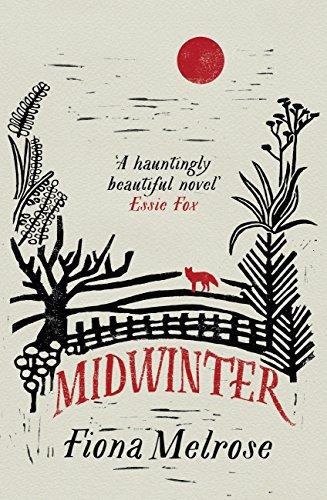
Father and Son, Landyn and Vale Midwinter, are Suffolk farmers, living together on land their family has worked for generations. But they are haunted there by a past they have long refused to confront: the death of Cecelia, beloved wife and mother, when Vale was just a child. Both men have carried her loss, unspoken. Until now. With the onset of a mauling winter, something between them snaps. While Vale makes increasingly desperate decisions, Landyn retreats, finding solace in the land, his animals – and a vixen who haunts the farm and seems to bring with her both comfort and protection.
Why I chose it:
This moving story exemplifies the power of the ‘quiet novel’ with its vivid rendering of nature, place and raw emotion through lyrical prose. Review to accompany Fiona Melrose’s Writers on Location post on the Suffolk countryside on 24 November.
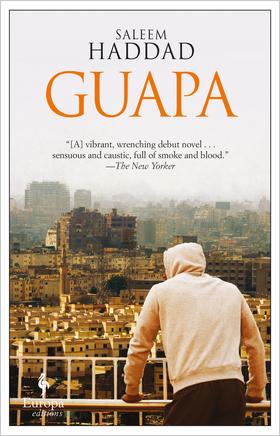
A Middle-Eastern capital caught in the revolutionary wave of the Arab Spring. A day in the life of a young man disillusioned with both East and West and struggling to find a place for himself in a society ruled by hypocrisy and contradictions. Rasa works as an interpreter for Western journalists by day and divides his nights between the Guapa, an underground nightclub where the city’s clandestine LGBT community congregates, and his secret lover Taymour. When Rasa’s overbearing grandmother, the woman who raised him, finds them in bed together on the eve of Taymour’s wedding, all hell breaks loose. That same day Rasa learns his best friend, the famous drag queen Majid, has been arrested by the police. Unable to go home, afraid for Majid’s fate, and heartbroken by Taymour’s determination to keep living a double life, Rasa’s fragile balance collapses.
Why I chose it:
This ambitious debut takes on a number of complex themes with empathy, insight and an engaging lightness of touch. The characterisation was a particular strength. Review to accompany Saleem Haddad’s guest post on The Gay Novel on 30 November.
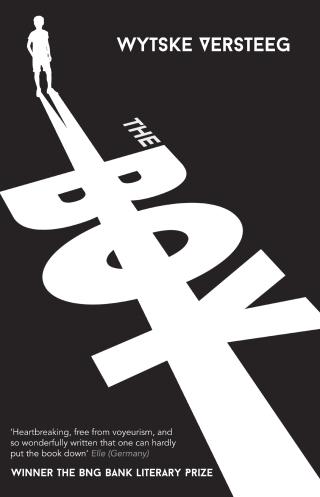
Kito is the only child of his adoptive parents. Chubby and dark-skinned, he is ruthlessly bullied at school, but at home he says nothing of what he is going through, only that he has pains in his stomach. After a class outing to the beach, Kito goes missing. Days later his lifeless body is discovered washed up on the sand. Determined to find the person responsible for Kito’s death, his mother follows the trail to drama teacher Hannah, who was in charge of the trip that day. By this time Hannah has begun a new life in the Bulgarian countryside, where she unsuspectingly welcomes Kito’s mother. As the snow begins to fall, the two women become entangled in a claustrophobic relationship, trust between them grows and Hannah hesitantly begins to tell the story of Kito. But Kito’s mother has only one thing on her mind: revenge.
Why I chose it:
A compelling, painful and uncompromising portrait of troubled attachment and maternal grief, this story has left a lasting impact on me. Review to accompany Wytske Versteeg’s guest post on issues surrounding motherhood on 7 December.
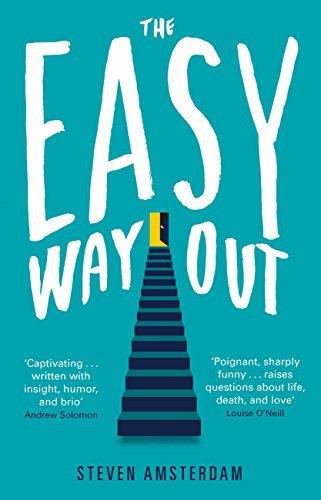
Evan is a nurse – a suicide assistant. His job is legal – just. He’s the one at the hospital who hands out the last drink to those who ask for it. Evan’s friends don’t know what he does during the day. His mother, Viv, doesn’t know what he’s up to at night. And his supervisor suspects there may be trouble ahead. As he helps one patient after another die, Evan pushes against the limits of the law – and his own morality. And with Viv increasingly unwell, his love life complicated, to say the least, Evan begins to wonder who might be there for him when the time comes.
Why I chose it:
The author, a palliative care nurse, makes this serious subject more than bearable with the intelligence, wit and compassion I’ve admired in his previous work – I must say, some of the lighter moments came as quite a (welcome) surprise. A great book to discuss or argue over.
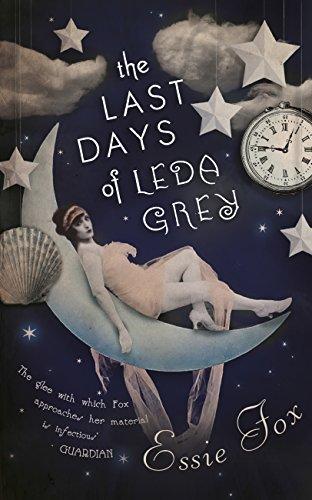
During the oppressive heat wave of 1976 a young journalist, Ed Peters, finds an Edwardian photograph in a junk shop in the seaside town of Brightland. It shows an alluring, dark-haired actress whose name was Leda Grey. Enchanted by the image, Ed learns Leda is still living – now a recluse in a decaying cliff-top house she once shared with a man named Charles Beauvois, a director of early silent film. As Beauvois’s muse and lover, Leda often starred in scenes where stage magic and trick photography were used to astonishing effect.
But, while playing a cursed Egyptian queen, the fantasies captured on celluloid were echoed in reality, leaving Leda abandoned and alone for more than half a century – until the secrets of her past result in a shocking climax, more haunting than any to be in found in the silent films of Charles Beauvois.
Why I chose it:
I enjoyed the sheer escapism of immersing myself in the seductive glamour of this novel brimming with mystery, menace and the romance of a bygone age.
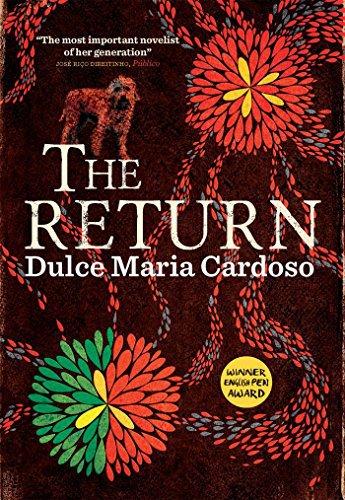
Luanda, 1975. The Angolan War of Independence has been raging for at least a decade, but with the collapse of the Salazar dictatorship, thousands of settlers are fleeing back to Portugal to escape the brutality of the rebels. 15- year-old Rui is filled with a mixture of excitement and dread at the prospect of a new life in a homeland he has never visited. But just as they are leaving for the airport, his father is taken away by the rebels. Not knowing if he is alive or dead, Rui, his mother and sister try to rebuild their lives in their new home, a five star hotel in a seaside suburb of Lisbon, where the unwelcome returnee families are crammed into luxurious rooms by the dozen.
The hotel becomes a curious form of purgatory as the families wait to discover what will become of them. Rui has his own personal struggle with his new life: growing up, dropping out of school, facing discrimination, and the ever-present worry over his mother’s deteriorating health. And then one night his father returns from the dead.
Why I chose it:
I was charmed and touched by the voice of Rui, which offsets the sadness and brutality of the circumstances and the confusion of adolescence with his natural humor and resilience. In this novel a little-known political and historical era is brought to life on an intimate scale, and yet it has a startling relevance to the state of the world today.
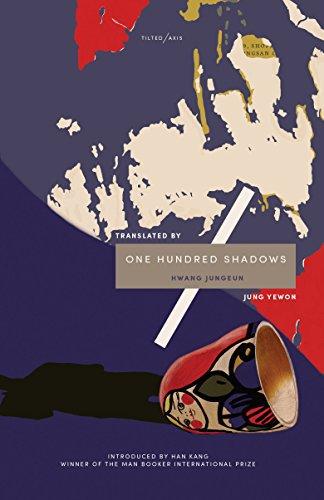
An oblique, hard-edged novel tinged with offbeat fantasy, One Hundred Shadows is set in a slum electronics market in central Seoul – an area earmarked for demolition in a city better known for its shiny skyscrapers and slick pop videos. Here, the awkward, tentative relationship between Eungyo and Mujae, who both dropped out of formal education to work as repair-shop assistants, is made yet more uncertain by their economic circumstances and a strange recent development – the shadows of the slum’s inhabitants have started to ‘rise’. One Hundred Shadows depicts the hidden underside of a society which can be viciously superficial, complicating the shiny, ultra-modern face which South Korea presents to the world.
Why I chose it:
There is a strange and haunting beauty in this very short book where social and magical realism overlap as old and new worlds collide. It has depth, but in place of the anger and cynicism the subject may have inspired, there is a touching innocence and tangible sense of the place and way of life which it immortalises. Recommended to those who enjoy the writing of Murakami and Han Kang.
Have you read any of these? Which ones appeal to you?
If you’ve enjoyed my selection, I’d be grateful (and no doubt the authors would too) if you could share it far and wide. If you’re a first time visitor to the Literary Sofa, thanks for checking it out. You can join me and my top-notch line-up of guest authors every week – enter your email in the box top right to receive notifications of new posts.
*POSTSCRIPT*
On 14 December I’ll be looking back on 2016 – My Year in Books, in which I pick my personal favourites.
The Spring 2017 Sofa Spotlight is scheduled for late February.

